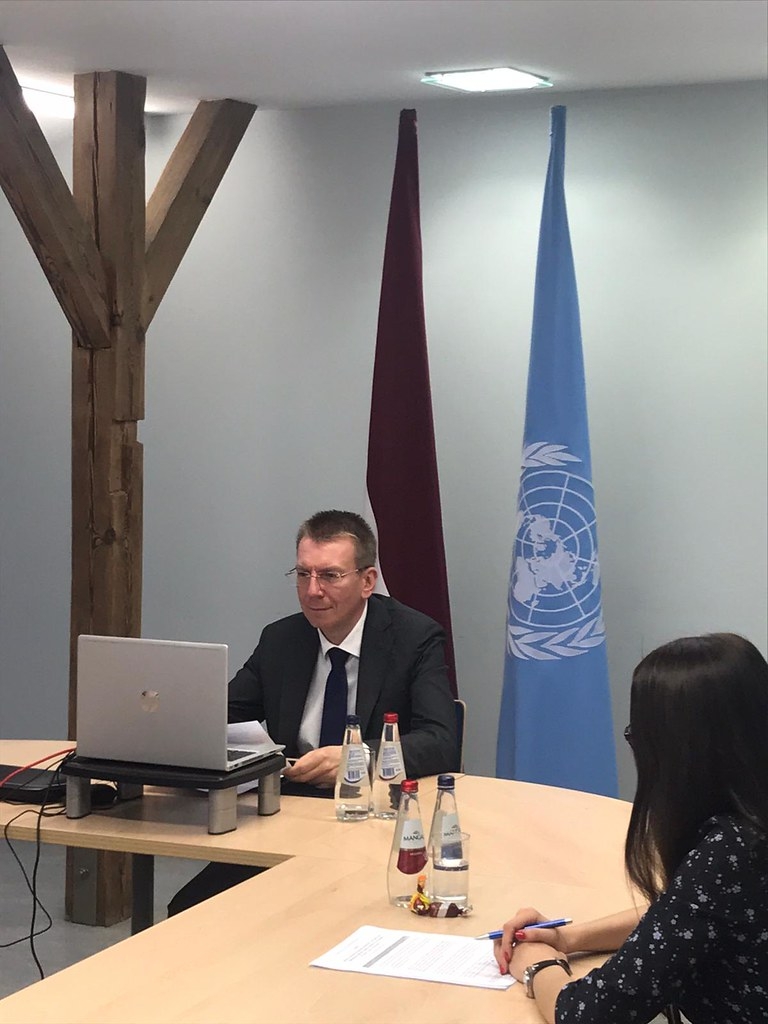On 22 May 2020, the Minister of Foreign Affairs, Edgars Rinkēvičs, took part in a meeting of the United Nations Security Council (UNSC) on stability and international law in cyberspace, organised under the auspices of the Estonian Presidency.
The Minister pointed out that the existing and potential threats in the sphere of cyber security are among the most serious of the twenty-first century potentially impacting the functions of the state and society. During the lock-downs of Covid-19 pandemic, it is of special importance to pay attention to cyber security as the cyber space has suddenly become the primary habitat and telework environment for every connected person.
Edgars Rinkēvičs commended the dedicated efforts over more than a decade by the UN and its member states in promoting an open, secure, stable, accessible and peaceful internet. Moreover, the UN General Assembly has confirmed that international law applies to cyber space.
The Latvian Foreign Minister spoke of the importance of universally applying the commonly shared and accepted norms and basic principles of international law in cyber space. This is a vital condition for the preservation of cyberspace as a single, neutral, and un-fragmented network. And this process requires the engagement of a range of non-state actors such as the private sector, civil society and academia.
Minister Rinkēvičs emphasized that states, guided by international law, bear the primary responsibility for the orderliness of cyberspace. Active cooperation and goodwill at the international level, in regional organisations or through bilateral collaboration among countries are necessary in order to foster stability in cyberspace.
The UN Security Council is composed of 15 members, five of which are permanent members and ten are non-permanent members elected for two-year terms. For the first time, Estonia has been elected as a non-permanent member of the UN Security Council and will serve from 2020-2021. This May, Estonia also holds the Presidency of the UN Security Council.
The meeting was an online video conference that brought together 42 countries.





